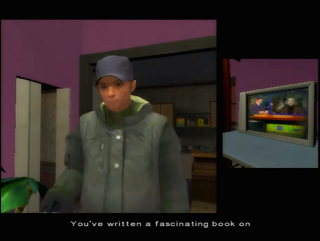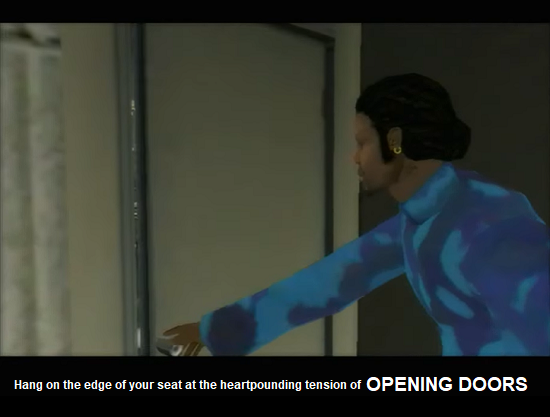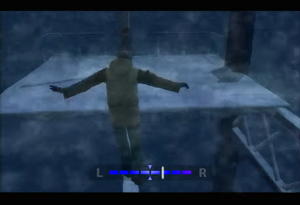RETRO REBOOT | Indigo Prophecy (Xbox, PlayStation 2)
RETRO REBOOT
Mike Lind
2/25/2025
Ah, Quantic Dream. Doing game reviews, it was eventual that I would talk about this studio and its contributions to this medium. This may be the most snobbish take I ever have, and I used to catch flack for it, but the stuff studio founder and director/writer David Cage directs and creates are what I consider the bane of game design. Detroit: Become Human is probably the studio's most popular game (and the only one that brand has made that I can remotely tolerate), but the one everyone kept recommending I play back in the mid-2000's was the cinematic marvel Indigo Prophecy.
Released for the Xbox and PS2 in 2005 and known as Fahrenheit around the world, this was one of those games that further pushed the boundaries of blurring the line of video game and movie. And frankly, it's just something that isn't my tastes. Now, for the sake of clarity, I think that story-driven games certainly have their place, and there's a good number of them I enjoy. Even going back to the point-and-click puzzle games on PC, like The 7th Guest and the Pumpkinhead series to Life is Strange, and TellTale Games titles like The Wolf Among Us or Doki Doki Literature Club!. Hell, even Quantum Break excels at the presentation serving as a serialized television show that rolls seamlessly into a third person action game. But David Cage? This French bearded potato is like if you took all the ambition of Hideo Kojima, but replaced all the talent with subtle-free angst, mean-spirited treatment of women, and faux Hollywood script-writing that some middle-act was typing in a barista in Bothell, Washington.
Indigo Prophecy is the story of of Lukas Kane, a man who becomes supernaturally possessed and ends up committing murders. His memories of the events are foggy early on, and as the game progresses, he works on putting the missing pieces together by visiting a spirit medium. The narrative shifts to Detective Carla Valenti and her partner, Tyler Miles. Gameplay elements mostly just include pressing buttons when prompted at the right time or rhythm, this affects various meters in the game, like stress, tention, what-have-you. Often times, a literal Simon game will appear and you have to mime the inputs for success. This started the growing trend in games where quick-time events began to run amok, and while they can be cleverly used, they aren't a complete replacement for integral game design. It's the bare minimum of interactive decision making, and only measures the "player's" ability to follow directions.
As for the narrative itself, I found it to be derivative garbage. The characters are distilled and uninteresting archetypes who come off less like two-dimensional personalities and more like devices to push the artificially intense story forward. It's shot and directed like any given suspense thriller, utilizing so many artsy camera angles, Roger Christian would blush in embarrassment.
Visually, the game is fine, dare I say it looks pretty good for the time. Its presentation could potentially pull people who may not be particularly interested in video games to spy on what's happening on the screen. The facial and motion capture is pretty progressive, something that has become the industry standard. Seldom does a high production game NOT utilize these methods (see The Last of Us and Death Stranding. Coincidentally two games I care very little for). So from a technical standpoint, Indigo Prophecy is fairly intriguing. The novelty wears thin with the repetitive mini-game puzzles that aren't particularly clever and are more a test of my patience. Calling it "controls" is like referring to the "OPEN HERE" tab on your box of Cheez-It as vital instructions.
Suffice to say, I can't stand this game. Replaying it to jog my memory for context only reinforced my belief that Quantic Dream contributed to a game directing style that aims to be stylish, but lacks substance in every regard. Unless his intended audience are high-brow weirdos who consider video games the pinnacle of art, I fail to understand how these productions ever caught on. Indigo Prophecy is the work of an individual who lacked the talent to cut it in film school, and found an avenue in the burgeoning popularity of video games, and its popularity has been a stubborn nuisance ever since.






